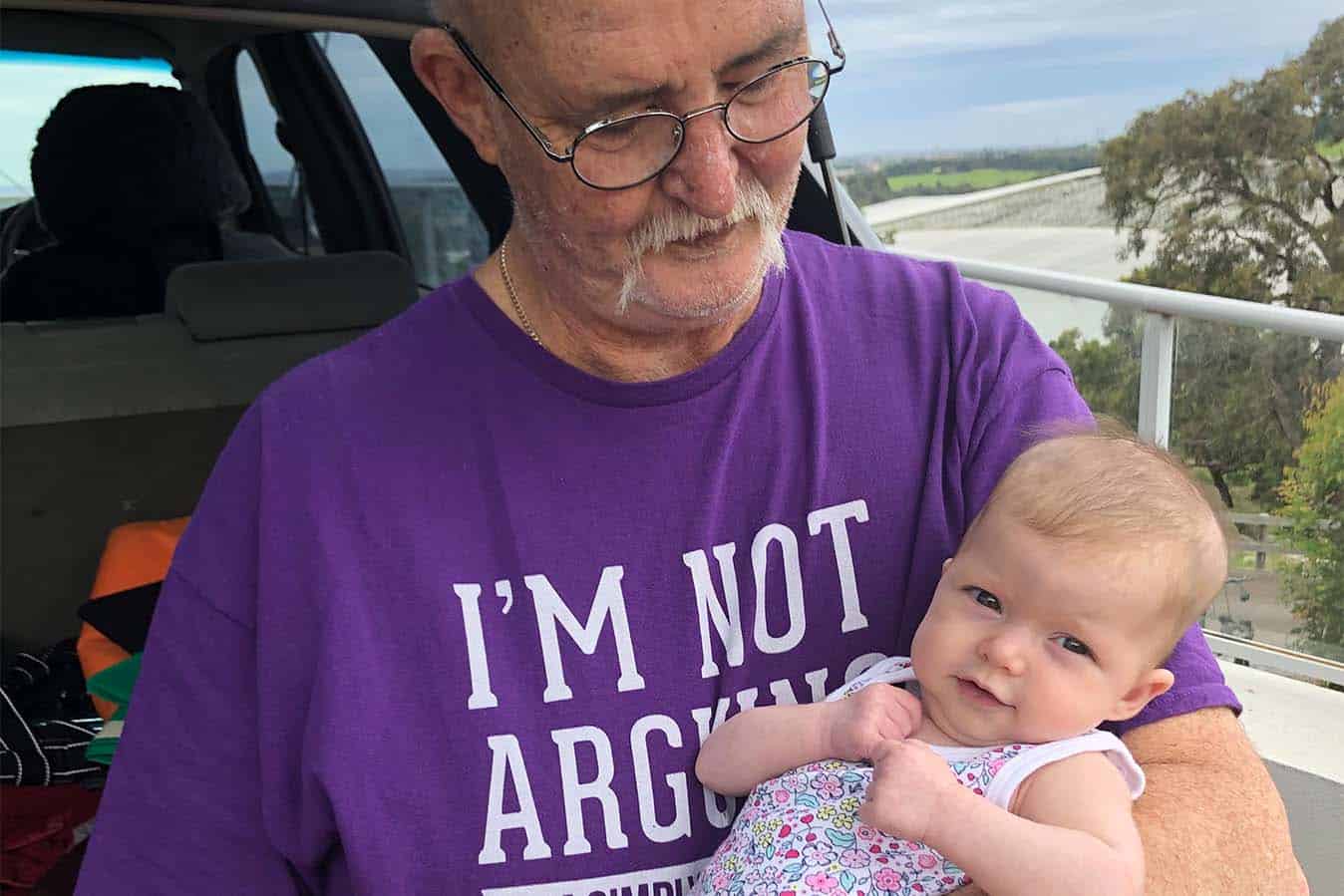I consider myself an easy going, adaptable person who can usually see both sides of an argument – but negotiating through the healthcare system during a pandemic was next level.
My name is Sarah and have been a nurse and midwife in the public sector for 12 years. I am a mother of 16 month old Ella, and was the primary carer to my partner Tony.
Tony received a terminal cancer diagnosis in September 2018. I became the voice of reason to him and spent many days negotiating his care with him – he was stubborn and strong willed. I was soon coordinating his multiple appointments with oncologists, surgeons, stoma nurses, imaging, radiotherapy and day oncology units – all whilst working full time. Six month later I became pregnant.
We got into a rhythm of treatment and appointments – it was our new normal and we managed as best we could. Like any illness we had a few hiccups along the way – couple of steps forward then a couple of steps back – we took it in our stride. December 2019 saw the birth of Ella – we were besotted with her. We were however acutely aware that our time together was limited, and specifically that current treatment was appearing ineffective. When Ella was four days old further investigations showed we were right-so a change in treatment (again!!)
Then Coronavirus emerged and it sent us into a spin. What impact would this have on Tony if he got it? What about Ella? So much uncertainty. Specialist appointments were moved to Telehealth – definitely a positive from COVID. Tony’s blood results were indicating an amazing response to treatment – he was even looking at returning to archery – his favourite hobby. We were emerging from the first lockdown feeling relatively positive, and given restrictions were easing and the virus seemed under control within the community, Tony was sent for his CT scan to assess the treatment. All indications pointed towards a great result.
Our world collapsed the day after his scan following a call from his oncologist to tell us that not only was there little change to the existing tumours, there was a large metastasis in his skull. His chemotherapy stopped and he was to have radiotherapy to his skull for symptom relief (recent severe headaches) – his prognosis was poor. We weren’t out of lockdown for long in Victoria before restrictions tightened again – this was the start of an exceptionally challenging time for managing COVID restrictions while still being a mother, partner and carer.
As a nurse I understood the balance of individual patient needs with those of the broader community within a hospital setting. Our first challenge was Tony’s radiotherapy and his planning appointments. Due to COVID restrictions I was unable to take our breastfed five month old to the appointments, and I had limited people available who could just wander around outside the hospital with Ella while I accompanied Tony – appointment lengths were unknown so difficult to leave Ella at home. As a result, Tony attended these appointments on his own. Our next challenge was an ED visit as Tony had neurological symptoms – again I was unable to bring six month old Ella with me while I supported Tony, and provided crucial information to clinicians about his illness, treatment and symptoms – he had become completely dependent upon me to provide this information.
What real risk did an infant in a carrier really pose to other patients? (I am aware these guidelines have subsequently changed from DHHS, but a mother/baby dyad at the time was not allowed). Stage 4 restrictions were well and truly in force by now-those who were able to care for Ella while I was supporting Tony, were getting nervous about travelling further than 5km from their home – it was a legitimate reason, but it still made them nervous. On this occasion family looked after Ella, but had to leave the hospital with her – again due to restrictions. Over the next couple of hours I was becoming increasingly anxious about being separated from Ella, but needed to stay with Tony.
Over the next few weeks the difficulties were around having adequate support at home while managing the side effects of radiation, recommencing chemo and trying to provide quality of life for Tony – we weren’t allowed to visit family and friends, he couldn’t do anything apart from sit at home and watch the world go by. Our final, and probably most significant challenge came in August when the time had come, go into a palliative care unit. Our closest unit wouldn’t allow Ella to visit her dad under any circumstances (she was nearly eight months old), so I declined to have him admitted there – I would rather struggle at home with him. Another unit was found that would happily allow Ella to visit her dad. Tony was admitted on Friday afternoon and peacefully passed away on Saturday at lunchtime with Ella and I by his side.
I supported the need for strict restrictions to manage the COVID outbreak, I acknowledge the need for rules to be in place ‘for the greater good’, however there are some very significant, unintended outcomes of these restrictions. I shouldn’t have had to choose between being a carer and being a mother, nor should I have had to choose between having Tony appropriately cared for and him seeing his daughter in his final days.
Author
Sarah Littlejohn is Associate Midwifery Unit Manager at The Royal Women’s Hospital. Sarah holds both a Bachelor of Nursing and Bachelor of Midwifery.








